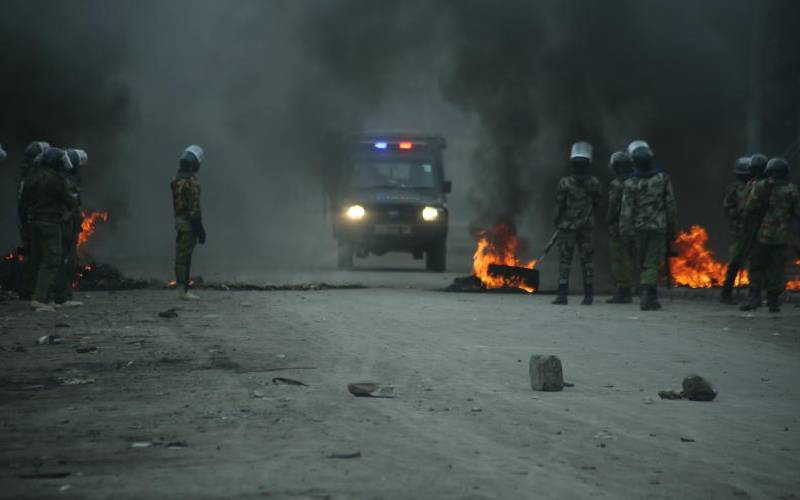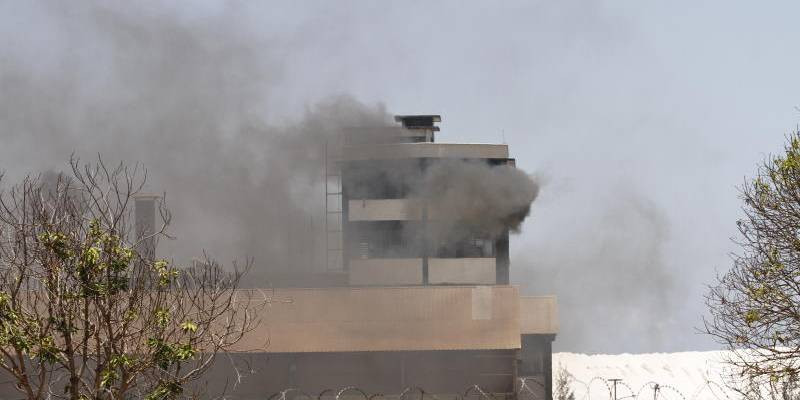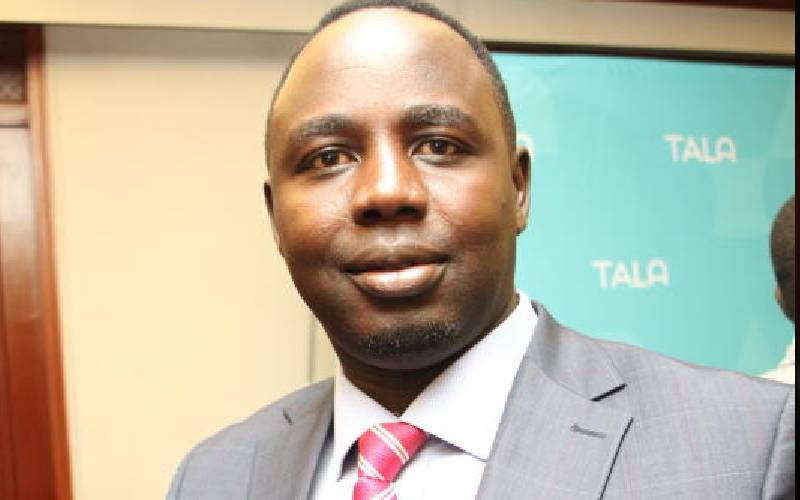An anti-riot police vehicle drives past the aftermath of protests in Kitengela during during Saba Saba protest in Kitengela on July 7th 2025. [Collins Oduor, Standard]

An anti-riot police vehicle drives past the aftermath of protests in Kitengela during during Saba Saba protest in Kitengela on July 7th 2025. [Collins Oduor, Standard]
It has been five days since July 7, the 35th anniversary of Saba Saba Day. I have since had the opportunity to reflect on the lessons from that day, and I pray that the lessons will be of value as we jointly seek to build a greater nation.
The first lesson is that we must never stop commemorating the critical junctures that have defined the Kenya we know, however uncomfortable those commemorations may be. Were it not for such commemorations, later generations would never be able to locate their struggles within a historical context. Such connections with history enable a people to celebrate their heroes and give them an opportunity to ponder what is different and what is similar between the past and the present. It thus enables the crystallisation of agendas for the future as part of a trajectory of continued progress.
Looking at the first Saba Saba in 1990, Kenyans were fighting for basic civil and political freedoms, including freedom of assembly and speech. 35 years later, these freedoms, and the blood that was paid to achieve them, are what have given Gen Zs the space to express their discontent.
The fight for these freedoms came at a price, and as uncomfortable as it is to accept, there will be a price for any forward movement, as today’s generations pursue not civil and political freedoms, but socio-economic rights.
The latter, premised under a progressive constitution, remains a dream for a significant majority of the population. This generation must demand these rights but one prays that as they make rightful demands, the Gen Zs and their allies will operate within the bounds of rationality and reasonableness and that any price the generation will pay will not be the loss of life and limb as has unfortunately become the trend in the last few months.
The second lesson is that, like the first Saba Saba, all revolutions are hijackable. Whether by thugs, agent provocateurs hired by political actors, or by people who want to harvest where they have not sown, this week’s protests were hijacked to a significant measure. There will be continued hijacking of protest movements as we get closer to the big battle in August of 2027. Related to this lesson is the reality that the Gen Z protests have political undertones like any other popular movement.
Unseen until now, this reality was made obvious by the fact that huge swathes of the population, defined by regional politics, but having their share of Gen Zs, stayed away from the Saba Saba protests. This should give everyone pause. Maybe Gen Z are not as tribeless, leaderless and removed from our region-based politics to the extent that is assumed. Granted, it is early days, and one cannot make conclusions, but therein may lie Gen Z's Achilles heel. But time will tell how independent of the vagaries of Kenya’s irrational politics this generation is.
Third lesson. While it may take a lifetime to build a country, it can take a moment to destroy it. When I watched hundreds of youngsters raid supermarkets and food stores, I remembered a character called Bazarov in Ivan Turgenev’s classic, Fathers and Sons. Bazarov was a nihilist, rejecting all authority and believing in the need to destroy all physical and ideational structures, primarily because he was disconnected from their promise.
While parts of the raids were pure thuggery, there were significant portions of the looters who were making a statement about a country whose wealth they did not feel they were a part of, now or in the future. As irrational and unreasonable as such acts are, they call for a reflective attention by leadership to ensure that this portion of the population, which feels numb about destroying a world they feel disconnected from, is a minority. The vision of everyone in leadership must be to ensure that even those who cannot enjoy the fruits of the present can envision a possible future, even if it is only for their progeny.
Final lesson. There is hope for Kenya, captured by the scenes of Kenyans returning goods they had stolen from supermarkets in Kirinyaga. Even if these are a minority, it says that we still retain the seeds of a great country that we must not allow to die in the forest of disillusionment.
The writer is an advocate of the High Court







